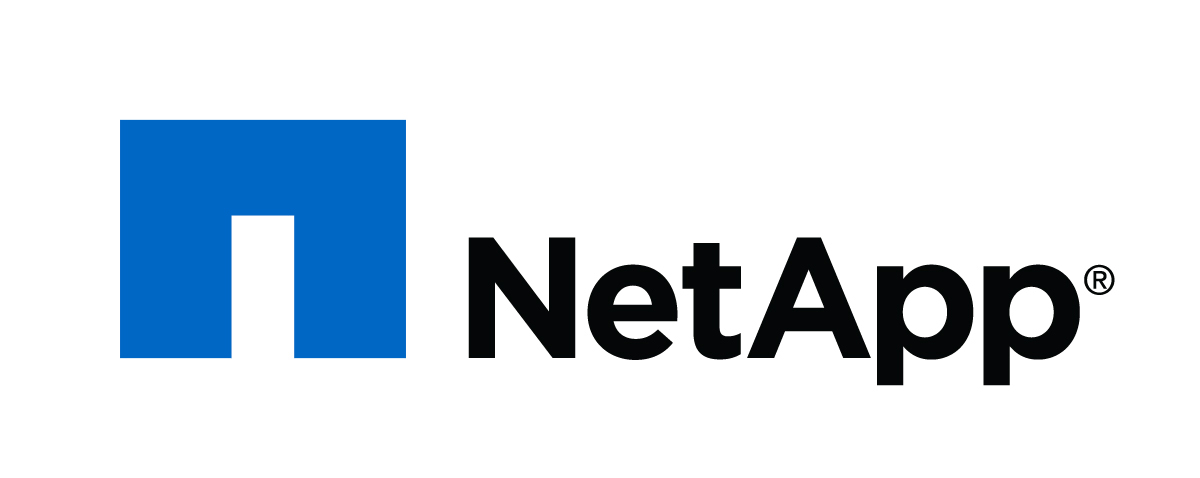ACM SIGCOMM 2018 Workshop on Network Meets AI & ML (NetAI 2018)
Workshop Program
- Opening
-
8:50 am - 9:40 am Keynote I: Toward Highly-Available, Intelligent Cloud and ML Systems
Speaker: Chuanxiong Guo (ByteDance, China)
Location: InterContinental, Ballroom I
- Session I: Systems
-
9:40 am - 10:05 am HiPS: Hierarchical Parameter Synchronization in Large-Scale Distributed Machine Learning
Jinkun Geng, Dan Li, Yang Cheng, Shuai Wang, Junfeng Li (Tsinghua, China)
-
10:30 am - 11:00 am Tea/Coffee Break
Location: InterContinental, Pre-Function Area
- Tea/Coffee Break
-
11:00 am - 11:50 am Keynote II: Self-Programming Networks: Architecture and Algorithms
Speaker: Balaji Prabhakar (Stanford, USA)
Location: InterContinental, Ballroom I
- Session II: Measurements I
-
12:15 pm - 12:40 pm Efficient Distribution-Derived Features for High-Speed Encrypted Flow Classification
Johan Garcia, Topi Korhonen (KAU, Sweden)
-
12:40 pm - 2:00 pm Lunch Break
Location: InterContinental, Pre-Function Area
- Lunch Break
- Session III: Mobility
-
2:00 pm - 2:25 pm Adaptive Multiple Non-negative Matrix Factorization for Temporal Link Prediction in Dynamic Networks
Kai Lei, Meng Qin (PKU, China), Bo Bai, Gong Zhang (Huawei, China)
-
2:25 pm - 2:50 pm Tracking Groups in Mobile Network Traces
Kun Tu (UMass, USA), Bruno Ribeiro (Purdue, USA), Ananthram Swami (ARL, USA), Don Towsley (UMass, USA)
-
2:50 pm - 3:15 pm Wireless Optimisation via Convex Bandits: Unlicensed LTE/WiFi Coexistence
Cristina Cano (UOC, Spain), Gergely Neu (UPF, Spain)
-
3:15 pm - 3:45 pm Tea/Coffee Break
Location: InterContinental, Pre-Function Area
- Tea/Coffee Break
- Session IV: Caching, Forwarding and TCP
-
3:45 pm - 4:10 pm DeepCache: A Deep Learning Based Framework For Content Caching
Arvind Narayanan, Saurabh Verma, Eman Ramadan, Pariya Babaie, Zhi-Li Zhang (UMN, USA)
-
4:35 pm - 5:00 pm Improving TCP Congestion Control with Machine Intelligence
Yiming Kong (Georgia Tech, USA), Hui Zang (FutureWei, USA), Xiaoli Ma (Georgia Tech, USA)
-
5:00 pm - 5:05 pm Mini-Break
Location: InterContinental, Pre-Function Area
- Mini-Break
- Session V: Measurements II
-
5:05 pm - 5:30 pm Deep-Q: Traffic-driven QoS Inference using Deep Generative Network
Shihan Xiao, Dongdong He, Zhibo Gong (Huawei, China)
-
5:30 pm - 5:55 pm Assessing the Impact of Network Events with User Feedback
Shobha Venkataraman, Jia Wang (AT&T, USA)
- Closing
Overview
Distributed processing systems for Artificial Intelligence (AI) and Machine Learning (ML), such as Hadoop, Spark, Storm, GraphLab, TensorFlow etc., are widely used by industry. On the one hand, networking is a well-known bottleneck for AI & ML systems. For example, traffic patterns experienced by ML applications during training can be optimized using techniques such as parameter servers and vertex-cut for graphs. New technologies are also being embedded in the network; examples include RDMA over converged Ethernet (RoCE) and GPU direct. On the other hand, the ever increasing complexity of networks makes effective monitoring, modeling, auditing, and overall control of network traffic difficult if not impossible. Hence there is a need for more powerful methods to solve the challenges faced in network design, deployment, and management. AI & ML have been successfully applied to various perceptual domains, including computer vision, natural language processing, and voice recognition. In addition, ML techniques are showing impressive results in new domains such as medicine, finance and astronomy, to name a few. This success in non-perceptual domains suggests that ML techniques could be successfully applied to problems in the network space. The networking community should look upon all these challenges as their opportunities in the Machine Learning era.
Call for Papers
NetAI 2018 provides a venue for presenting innovative ideas to discuss future research agendas in computer networking of/by/for AI & ML systems. We look for submissions of previously unpublished work on topics including, but not limited to, the following:
- telemetry in DC
- network measurement
- closed loop control
- AI & ML algorithm for network scheduling and control
- self learning network architecture and system
- services identify with AI & ML
- traffic engineer with AI & ML
- congestion control based on AI & ML
- network security based on AI & ML
- network verification
- network QoS based on AI & ML
- measurement and analysis of network traffic for AI & ML systems
- optimizing AI & ML systems with new networking options (e.g., RDMA, NVLink)
- AI & ML application-driven networking optimization (e.g., MPI offload)
- networking AI & ML computation with large-scale storage technologies (e.g., NVMe over Fabric, FCoE)
- networking for distributed ML systems
- networking for large-scale distributed graph processing systems
- new network functionality for AI & ML system ( e.g., computation in network )
- application-driven network architecture design
Keynotes
-
Balaji Prabhakar
Stanford, USA
-
Chuanxiong Guo
ByteDance, China
Submission Instructions
Submission implies the willingness of at least one author to attend the workshop and present the paper. Accepted papers will be included in the ACM SIGCOMM conference proceedings. Workshop organizers reserve the right to exclude a paper from distribution after the workshop if the paper is not presented at the conference. Submitted papers should contain original material that have not be previously published, nor currently submitted for consideration elsewhere. All submissions should be written in English, with a maximum length limit of 6 printed pages, including all the figures, references and appendices. The ACM SIGCOMM LaTeX and Microsoft Word templates, as well as related information, can be found at the ACM SIG Proceedings website.
Specifically, please note the following format requirements:
- All papers submitted will be peer-reviewed (single-blind) and evaluated based on their suitability (i.e., within the workshop scope), novelty, and merit.
- All papers must be submitted in Portable Document Format (PDF) electronically. Whatever text processor or formatter you use to write your paper (LaTeX, Microsoft Word, FrameMaker, etc.), please convert the output to PDF before submission.
- Submissions must be limited to 6 pages, single-spaced, double-column, with each column 9.25” by 3.33”, 0.33” space between columns, use at least a 10pt font, and be correctly formatted to be printed on letter-sized (8.5” by 11”) paper. Submissions that violate the formatting requirements may not be reviewed.
- We must be able to print your paper once it is submitted. Therefore, all fonts used in the paper MUST be embedded in the submitted PDF file.
- The paper must be in a state where it can be printed clearly on standard black-and-white printers. Reviewers are not required to view your paper in color.
Please submit your paper via https://sigcomm18netaim.hotcrp.com/
Authors Take Note
The official publication date is the date the proceedings are made available in the ACM Digital Library. This date may be up to TWO WEEKS prior to the first day of the conference. The official publication date affects the deadline for any patent filings related to published work.
Registration
Attendance of the workshop is by open registration and subject to the same registration fees and rules as all the other SIGCOMM 2018 workshops. The registrants of the workshop may freely attend any workshop on the same day.
Camera-ready instructions
For the final paper to be published, please refer to Camera-ready instructions for workshops.
Important Dates
-
August 24, 2018
Workshop
-
Mid-June, 2018
List of organization details
-
Mid-June, 2018
Program available online
-
June 10, 2018
Camera-ready deadline
-
May 07, 2018Paper acceptance notification
-
April 07, 2018Submission deadline
Committees
- General Chairs
-
Jon Crowcroft
Cambridge, UK
-
Nicholas Zhang
Huawei, China
- Program Committee Chairs
-
Marco Canini
KAUST, KSA
-
Chen Tian
NJU, China
- Program Committee Members
-
Rocky Chang
PolyU, China
-
Hanhua Chen
HUST, China
-
Jon Crowcroft
Cambridge, UK
-
Lixin Gao
UMass, USA
-
Deke Guo
NUDT, China
-
Qun Huang
CAS, China
-
Juncheng Jiang
UChicago, USA
-
David Koll
GAU, Germany
-
Dan Li
Tsinghua, China
-
John C.S. Lui
CUHK, China
-
David Meyer
Huawei, USA
-
Peter Pietzuch
Imperial, UK
-
K. K. Ramakrishnan
UCR, USA
-
Timothy Wood
GWU, USA
-
Fengyuan Xu
NJU, China
-
Henry Xu
CityU, China
-
Eiko Yoneki
Cambridge, UK
-
Nicholas Zhang
Huawei, China
-
Ying Zhang
Facebook, USA
-
Zhi-Li Zhang
UMN, USA


















